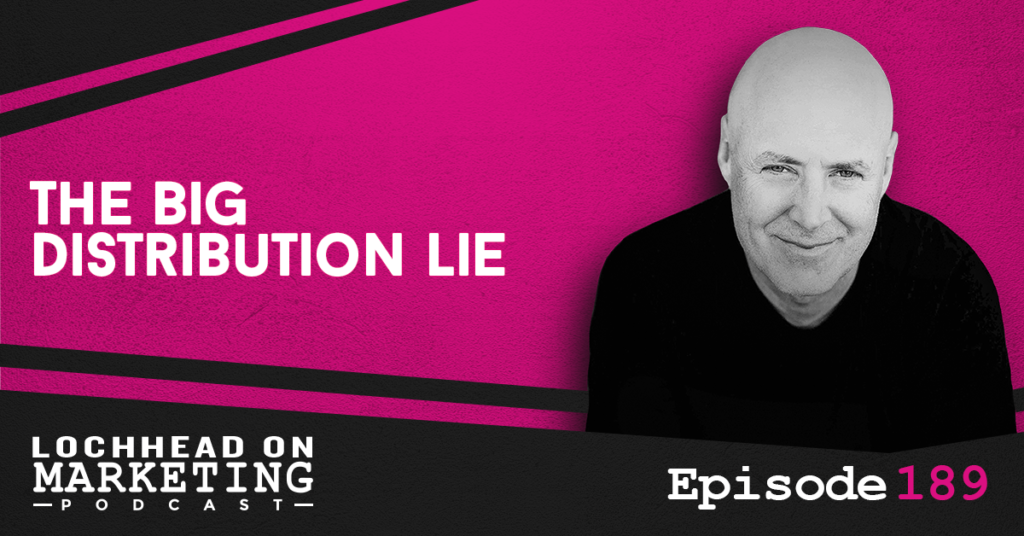189 The Big Distribution Lie

Podcast (lochheadonmarketing): Play in new window | Download (Duration: 7:07 — 4.9MB) | Embed
Subscribe: Apple Podcasts | Spotify | RSS | More
Happy new year to everyone, and we at Lochhead on Marketing hope that you’ve been having a good one so far. To start off the year, let us talk about the big Distribution Lie, why it is so, and what you really need for your new startup or project to make it big.
You see, in Silicon Valley, there has been an ever-increasingly large drumbeat that says the number one thing that a startup needs or that a new software launch of any kind needs is distribution. That if you can only get distribution, then you’d win, right? So, let’s test this.
Welcome to Lochhead on Marketing. The number one charting marketing podcast for marketers, category designers, and entrepreneurs with a different mind.
The Myth of Distribution as a Key to Success
For this discussion, let us use Google as an example. In 2018, Google launched Google Podcast as a competitor to the category king (Apple), and the current challenger (Spotify). On paper, Google Podcast should have the advantage: Google has a legendary distribution line with its 5 billion users and having a mailing and browsing platform that is widely popular worldwide.
And yet for some reason, Google Podcast is now at the brink of closing down in 2024. So why did it not beat out the category king, much less its challenger in this race?
Building the Category versus Muscling into the Market
Simply put, Google Podcast did not offer anything new that Apple Podcast or Spotify doesn’t already do. It was simply relying on the fact that on paper, it looks like the better product with a well-established distribution network to back it up.
Whereas Apple created the category, designed the space, and solved the “problem” that their product “solves”, thus cornering a big chunk of the market.
This is a mistake that happens over and over and over again, category design economics are clear, the company that designs the space is best positioned to dominate it and by dominated our primary research has shown that the company that designs the category, if they can execute over time, earns 76% of the total value created.
Doomed to Repeat Itself
Unfortunately, this is not the first time this has happened to Google. One big thing most people might remember is Google Plus, which was supposed to take down Facebook. And not only Google is susceptible to this, as different big tech companies have committed this mistake, because they believe they could just use their better distribution systems to take over a market, rather than creating their own to dominate.
So at the end of the day, no matter how good your product is, and how great your distribution advantage is: if you don’t design a new category, around a problem that matters to customers, it doesn’t matter how legendary your product is.
Bio
Don’t forget to grab a copy (or gift!) of one of our best-selling books:
Snow Leopard: How Legendary Writers Create A Category Of One
The Category Design Toolkit: Beyond Marketing: 15 Frameworks For Creating & Dominating Your Niche
A Marketer’s Guide To Category Design: How To Escape The “Better” Trap, Dam The Demand, And Launch A Lightning Strike Strategy
 The 22 Laws of Category Design: Name & Claim Your Niche, Share Your POV, And Move The World From Where It Is To Somewhere Different
The 22 Laws of Category Design: Name & Claim Your Niche, Share Your POV, And Move The World From Where It Is To Somewhere Different
We hope you enjoyed this episode of Lochhead on Marketing™! Christopher loves hearing from his listeners. Feel free to email him, connect on Facebook, Twitter, Instagram, and subscribe on iTunes!

